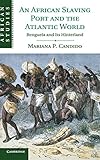Support H-Net | Buy Books Here | Help Support the NBN and NBN en Español on Patreon | Visit New Books Network en Español!
- African Studies
- African American Studies
- American Politics
- American Studies
- American South
- American West
- Asian American Studies
- Australian and New Zealand Studies
- British Studies
- Canadian Studies
- Caribbean Studies
- Central Asian Studies
- Chinese Studies
- East Asian Studies
- Eastern European Studies
- European Politics
- French Studies
- German Studies
- Iberian Studies
- India Studies
- Indian Ocean World
- Iranian Studies
- Irish Studies
- Israel Studies
- Italian Studies
- Japanese Studies
- Korean Studies
- Latino Studies
- Latin American Studies
- Mexican Studies
- Middle Eastern Studies
- Native American Studies
- Pacific Studies
- Polish Studies
- Russian and Eurasian Studies
- Southeast Asian Studies
- South Asian Studies
- Turkish Studies
- Ukrainian Studies
- Western European Studies
- World Affairs
- Animal Studies
- Anthropology
- Archaeology
- Business, Management, and Marketing
- Media
- Critical Theory
- Disability Studies
- Drugs, Addiction and Recovery
- Education
- Economics
- Finance
- Geography
- Gender Studies
- Genocide Studies
- Higher Education
- Human Rights
- Journalism
- Language
- Law
- LGBTQ+ Studies
- National Security
- Philanthropy
- Philosophy
- Policing, Incarceration, and Reform
- Political Science
- Politics & Polemics
- Public Policy
- Sex, Sexuality, and Sex Work
- Sociology
- Sound Studies
- Sports
- Urban Studies
- Big Ideas
- Celebration Studies
- Co-Authored
- Cover Story
- Historical Materialism
- History Ex Silo
- Interpretive Political and Social Science
- Invested Investor
- Landscape Architecture
- Late Antiquity
- Mormonism
- NBN Book of the Day
- NBN Seminar
- Postscript: Conversations on Politics and Political Science
- Practical History
- Preparing for Life After Grad School
- Psychology and Climate Change
- Syriac Studies
- The Chair: In The Room at the Fed
- New Books with Miranda Melcher

Jan 21, 2015
Foreign Intervention in Africa
From the Cold War to the War on Terror
Summary
Elizabeth Schmidt's Foreign Intervention in Africa: From the Cold War to the War on Terror (Cambridge University Press, 2013) depicts the foreign political and military interventions in Africa during the periods of decolonization (1956-75) and the Cold War (1945-91), as well as the periods of state collapse (1991-2001) and the "global war on terror" (2001-10). In the first two periods, the most significant intervention was intercontinental. The United States, the Soviet Union, China, Cuba and the former colonial powers entangled themselves in numerous African conflicts. During the period of state collapse, the most consequential interventions were intracontinental. African governments, sometimes assisted by powers outside the continent, supported warlords, dictators, and dissident movements in neighboring countries and fought for control of their neighbors' resources. The global war on terror, like the Cold War, increased the foreign military presence on the African continent and generated external support for repressive governments. In each of these cases, external interests altered the dynamics of internal struggles, escalating local conflicts into larger conflagrations, with devastating effects on African populations. Schmidt's book is an excellent synthesis of the past 70 years of African history and politics. Her book is provocative, thoughtful and passionate. It is a superb book for students, general readers as well as scholars.
































































































